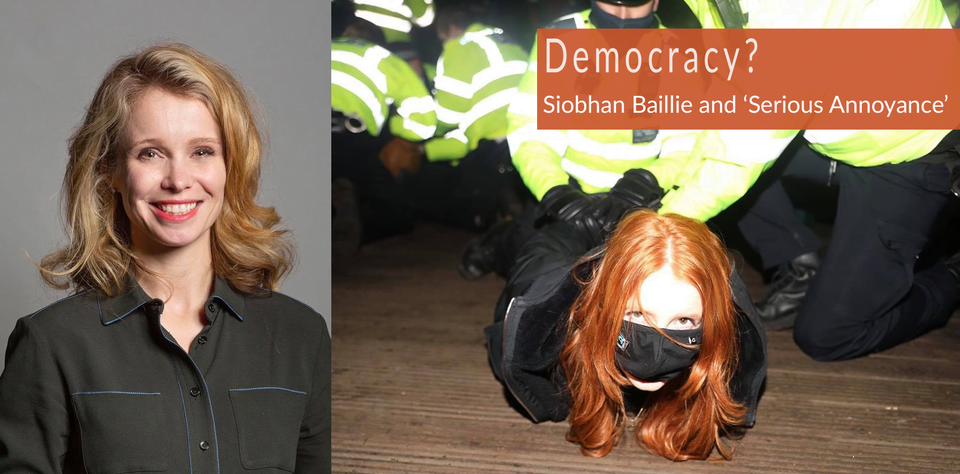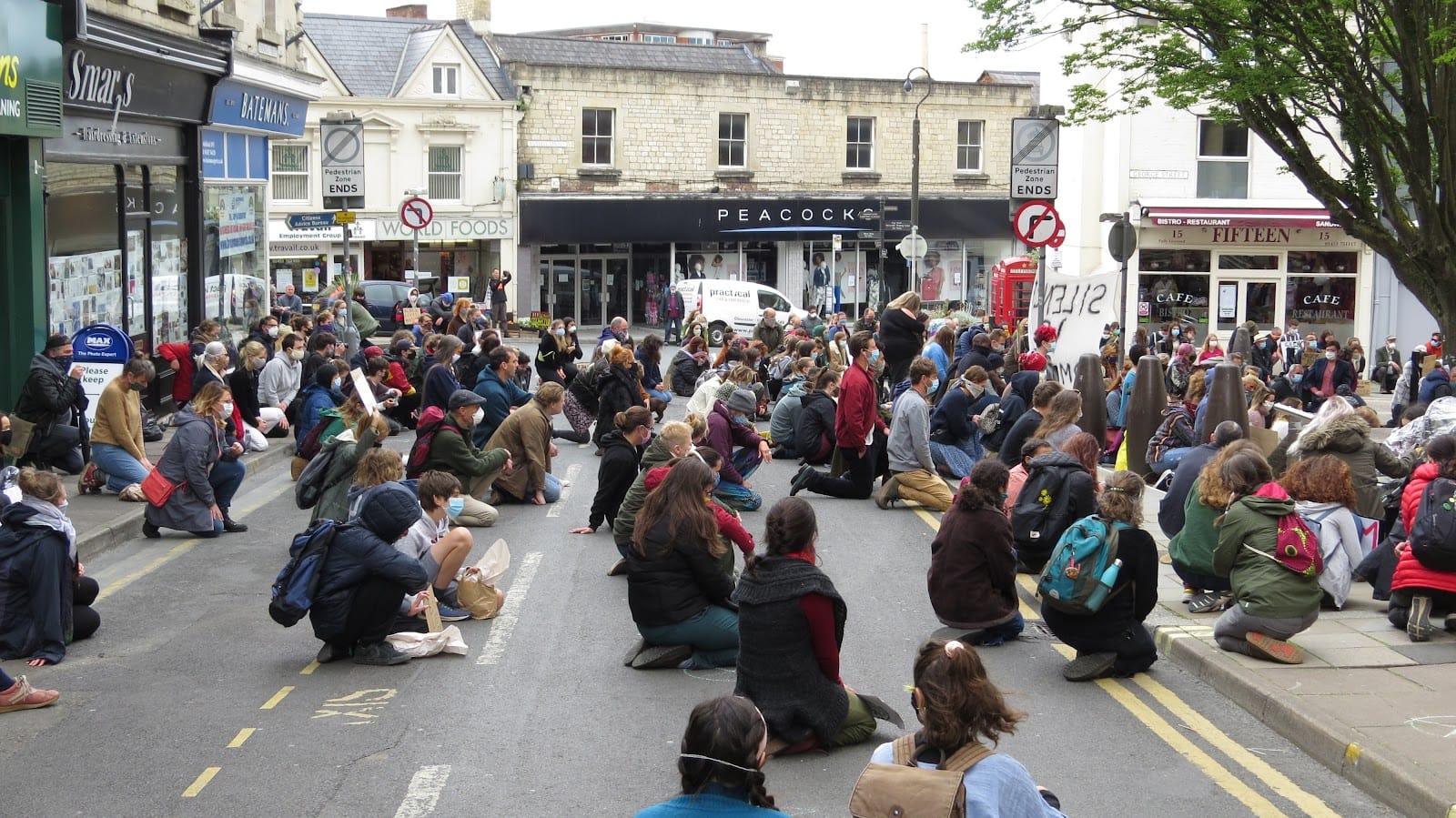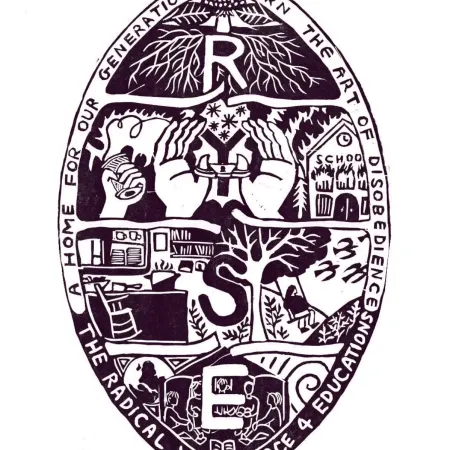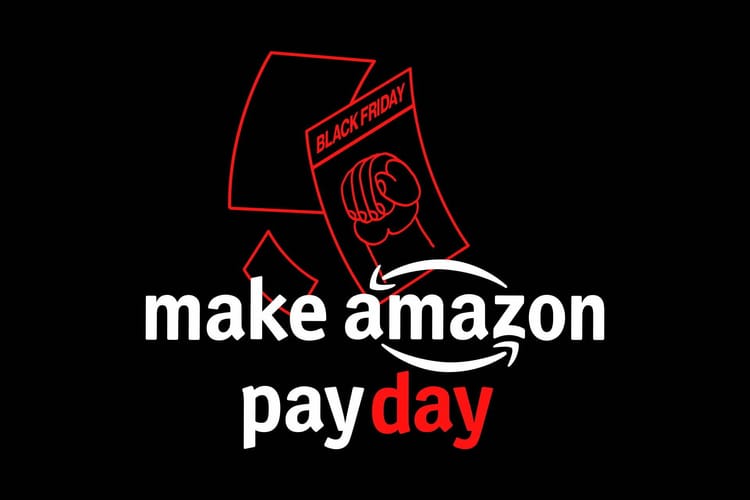Democracy? Siobhan Baillie votes for anti-protest Bill that could mean jail for causing ‘serious annoyance’

By Cassius Smith-Frazer, Jamie O’Dell and James Beecher
Last week we saw the Metropolitan Police violently break up a crowd of mostly women protesting against male violence in the wake of the death of Sarah Everard.
Not even a week after, the Conservative government, including Stroud MP Siobhan Baillie, have now voted through parliament a Bill that would effectively criminalise protest as well as further enable state violence against minority groups.
The Police, Crime, Sentencing, and Courts Bill (PCSCB), is the greatest threat to British democracy we have seen this century due to the new powers the bill affords police to prevent and break up protests and to dish out serious jail time to protestors.

One of the most alarming implications of the new powers the bill would afford to the police comes at clause 59 – “Intentionally or recklessly causing public nuisance”. This clause raises the possibility for protests to be restricted or broken up on the grounds that they cause ‘serious annoyance’ or ‘serious inconvenience’. Furthermore, someone deemed as causing ‘serious annoyance’ could be jailed for a maximum of up to 10 years.
Whilst this is unlikely to be applied in most cases, the provision is clearly intended to act as a deterrent to all forms of protest activity and is an affront to our right to dissent. It’s easy to imagine a chilling effect: A “democratic” nation wherein protests can be criminalised and quashed if they even come close to posing a meaningful threat – aka a ‘serious annoyance’ – to the power of the elite.
We should not be complacent about the risk that people could receive these long sentences – and clearly this is more likely to be people who are already routinely subjected to the excesses of a repressive criminal justice system: people of colour, Gypsies, Travellers and Roma, working class people, people marginalised because of their sexual orientation, and so on.

Over the past year, through the Black Lives Matter movement and the horrific murder of Sarah Everard, police brutality has come to the fore of the national political discourse. Those of us who have not directly experienced the structural violence of the state have been forced to confront the reality that the marginalised and vulnerable face daily.
Regarding the impact of the PCSCB on minority groups, Liberty (the human rights advocacy group), has warned that the Bill could further threaten Gypsy and Traveller communities, both by its criminalisation of trespass, and the ease with which lower level and racialised harassment such as stop and search is conducted.
The Friends, Families and Travellers group have stated in response to the Bill that: “The measures outlined in the PCSCB will further compound the inequalities experienced by Gypsies and Travellers, needlessly pushing people into the criminal justice system. The powers will disproportionately affect specific minority and ethnic communities and is likely to be in conflict with equality and human rights legislation.”
It is clear that despite much of the media lauding Boris Johnson’s ‘liberal’ instincts, that we are entering a grim era in British society. Equally, it’s concerning that we now have an MP who is seemingly utterly unconcerned with protecting these rights.
In a stock email sent to constituents yesterday from Baillie’s office, she stated that “In my view, instances where individuals at a protest behave in a way that deliberately causes unjustifiable disruption or distress to others should be stopped.” Not only does this ignore that police already have powers to do this and routinely go beyond them – as they did when kettling and attesting women standing against male violence at Sarah Everard’s vigil – it raises questions about who gets to decide what qualifies as ‘unjustifiable disruption or distress’, and how will this be applied against?
Alongside granting further powers to politicians and the police provides them further freedom to violently repress protests on the flimsiest of pretexts, the PCSCB also creates a legal ambiguity that tells organisers that there is no guarantee of their safety from the police at protests.
The vote yesterday, however, was only the Bill’s second reading. It will now go to the committee stage where it is reviewed line by line. The precise timetable is not yet clear, but like other Bills it will go through the Report stage, third reading and the House of Lords before receiving royal assent. There are many more opportunities to change or kill this Bill before it becomes law.
Such a dangerous expansion of powers should not be met with simple rage, but informed and organised resistance. This can be done both through Parliamentary opposition (such as it is), and more importantly through a mass and vibrant campaign and solidarity movement across the UK using all the tools at our disposal, not the least of which is taking to the streets ourselves. We have already seen numerous protest movements over the past year. These struggles are increasingly intersectional both because of their common systemic causes and the common repressive, violent response they receive at the hands of the police.
So do not stop at simply reading this article, there are multiple things you can do:
- Read up! There is so much work being done on this by organisations with a wealth of experience and knowledge and they have produced resources you can draw upon. They include; Liberty, Sisters Uncut, BLM, Abolitionist Futures, and there are many more. This organising toolkit from Sisters Uncut is particularly useful.
- Sign and share the Charter for Freedom of Assembly Rights petition against the Bill, from the Network for Police Monitoring (NetPol).
- Contact your MP, let Baillie know the importance of this issue and how untenable her, and the governments, stance is. It’s best to write in your own words, but you can use the WriteToThem tool to contact your MP and use text from Netpol to give you some ideas, and/or the Friends, Families and Travellers tool for letters opposing the “Harsh new laws for roadside camps”.
- Organise within your social spaces and community, build power and resistance in ways best adapted to you.
- Get out into the streets. Despite Conservative politicians deeming noisy protest a ‘severe annoyance’, these authoritarian managers must be fought. For information on current police powers and guidance for protests, Green and Black Cross have must-read information.
This legislation is designed to enhance the status quo – including its statues honouring imperialists and slave traders. It aims to deter people from any challenge, any action, and any protest about injustice and inequality, and – ultimately – to slow down or stop movements for change.
Perhaps you are already worried about how this legislation will affect you and those around you. Or perhaps you don’t feel you personally will be affected. But, as we write this piece and you read it, we benefit every day from the victories won by those who took to the streets in the hope of a better life. Disruptive protest has been behind every social change, freedom and right that we enjoy today. From the Chartists meetings on Selsley common in the 1800s, to bussing to national demonstrations in London against the Iraq war, Stroud is part of that history and our common inheritance.
It may be seriously annoying to some, but in the face of an authoritarian right-wing government, defending the right to protest is essential for all.



Member discussion